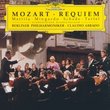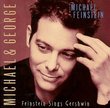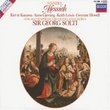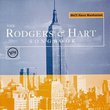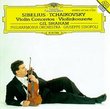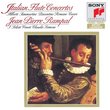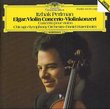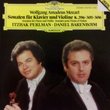| All Artists: Richard Goode Title: Mozart: Piano Concertos Members Wishing: 1 Total Copies: 0 Label: Nonesuch Release Date: 7/11/2000 Genre: Classical Styles: Chamber Music, Forms & Genres, Concertos, Historical Periods, Classical (c.1770-1830), Instruments, Keyboard Number of Discs: 1 SwapaCD Credits: 1 UPC: 075597960822 |
Search - Richard Goode :: Mozart: Piano Concertos
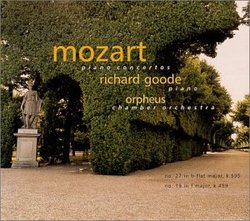 | Richard Goode Mozart: Piano Concertos Genre: Classical Listen casually to this disc and it almost seems as though nothing is happening; the music unfolds so naturally. There are no "events," no displays of personality, just plain Mozart. Listen very carefully and you begin to ... more » |
Larger Image |
CD DetailsSynopsis
Amazon.com Listen casually to this disc and it almost seems as though nothing is happening; the music unfolds so naturally. There are no "events," no displays of personality, just plain Mozart. Listen very carefully and you begin to notice a wealth of nuance and expression, qualities that will reveal themselves more thoroughly the longer you listen. Goode has absorbed this music so completely that he just plays, making it all sound simple. His style is similar to that of the admirable Mitsuko Uchida, whose complete series of Mozart Concertos is currently the preferred choice. But Goode has an advantage over Uchida here in the absence of a conductor. The English Chamber Orchestra under Jeffrey Tate does a splendid job of reflecting the conductor's interpretation. But in taking complete responsibility for their own parts, the members of Orpheus interact even more strongly with the soloist and with each other, resulting in the most vivid projection of the many small solos you are ever likely to hear. This recording sat "in the can" for four years after it was made; its release now is cause for rejoicing. --Leslie Gerber Similarly Requested CDs
|
CD ReviewsI love it when this happens. laurence leabow | Simi Valley, Ca. | 02/08/2002 (5 out of 5 stars) "I'm a novice. My world has been immensely enriched in the last two years by my collecting and listening to all sorts of classical and romantic music. The Mozart piano concertos are just totally knocking my socks off: the variety of emotion presented at such a high level of quality is so remarkable. I have listened to performances by Alfred Brendel, Alicia de Larrocha and Robert Casedesus only so my review might not have that much value to the more experienced. That being said, these are very satisfying recordings. The .... reviewer is absolutely correct about the natural unfolding of the music and the high level of interaction. Another quality is that it sounds like nobody is aware either that this music came from any "period" or that it is "the great" Mozart. More like someone showed them the music and they said "wow this is really good! Let's play it."" Exploring the Mozart Piano Concertos -- Nos. 19 and 27 Robin Friedman | Washington, D.C. United States | 10/24/2004 (5 out of 5 stars) "I have been listening over the past few months to several of the Mozart concertos performed by various artists. I recently was fortunate to hear this recording of Mozart's 19th and 27th piano concertos performed by pianist Richard Goode and the Orpheus Chamber Orchestra. This ensemble performs with grace, precision, and beauty, but without a conductor. The recording dates from 1996, but it wasn't released until 2000. The two concertos on this CD are both scored for strings, flute, oboe,horn, and bassoon, but otherwise they make a good study in contrast. Mozart composed his concerto in F major, K. 459 in December, 1784 and performed it as a soloist on several occasions. This is a joyous, optimistic work full of movement. It fuses the galant elements of 18th century music with "learned" elements derived from earlier baroque counterpoint. In his 1948 study, "Mozart and his Piano Concertos", Cuthbert Girdlestone said of this concerto that "it sings [confidence and happiness] in "the highest degree and never more in his work shall we hear so whole-hearted a joy so ingenuously expressed." (p. 280) Mozart's concerto in B-flat major, K. 595 was written in 1791, the last year of Mozart's life, following two years of great suffering and difficulty for the composer. It is the last of Mozart's piano concertos and, as does much of Mozart's last music, has a resigned, bittersweet, otherwordly quality. Again, to quote Girdlestone, "This concerto is the finest and fullest of those works to which we applied the perhaps unjust term 'wilting'....The intimate nature of its feeling makes almost chamber music of it and renders it unsuitable for performance in a large concert hall; its proper environment is a circle of lovers of music and of Mozart, gathered in the house of one of them." (p. 471) This is a work of quiet intimacy and reflection rather than brilliance. Both works are beautifully played on this CD by Goode and the Orpheus Chamber Orchestra. The tempos are well taken, and the collaboration between soloist and ensemble is excellent. The wind parts, which are essential to the Mozart concertos, come through well. The opening movement of the concerto in F Major, K 459, features a lively, rhythmic theme that dominates both the orchestral and the solo writing. Some listeners hear this music as a march and others hear it as a dance. (I think it is too light and flowing for a march.) Listen for the many ways in which the theme appears and for the interplay between the piano and the winds. The second movement is marked allegretto -- it is one of the few Mozart concertos without a slow movement. The movement is taken nicely on this recording with a lilt and a flow. This is a graceful movement without solemnity even though it includes a brief interlude in the minor key. There is a beautiful figure for the solo piano near the end of the movement. The third movement is a rondo which combines, as I suggested earlier, elements of the galant 18th century style with learned counterpoint. The movement opens with a long passage for orchestra and the piano spends much of the movement embroidering themes around the orchestra and orchestral soloists. Passages of harmonic writing alternate beautifully with passages of counterpoint in a manner that Mozart would later develop in the finale of the "Jupiter" symphony. The opening movement of the B-flat major concerto, K. 595, opens with a bar of a rocking accompaniment figure followed by a bittersweet, resigned theme interupted at several points by the winds. There is a complimentary, sighing secondary theme. The highlight of this movement lies in its development section in which phrases from the opening of the movement are expanded upon and tossed back and forth among the piano and various components of the orchestra, again particularly the winds. The second movement is a larghetto, opened by the piano with a sad, melancholy, and resigned theme, again not taken overly slowly. The piano has a parlando -- a speaking -- part which is eloquent and reflective as it plays in combination with the flute and other wind soloists. The third movement is a rondo which utilizes a lilting theme that Mozart used in a song called "Yearning after spring") ("Sehnsucht nach dem Fruhlinge") that he wrote at the same time as this concerto. This movement continues the reflective character of the earlier movement with some outbursts of chordal passages in the piano. This is an excellent CD for the listener wishing to explore two contrasting masterpieces among Mozart's piano concertos." Simply Mozart Roger S. Gottlieb | 08/27/2000 (5 out of 5 stars) "Richard Goode and the Orpheaus chamber orchestra give a great performance of Mozarts piano conerto nos 19 and 27. I really liked it not only because it was Mozart, but the performance of these pieces were incredible. I highly recomend this CD."
|

